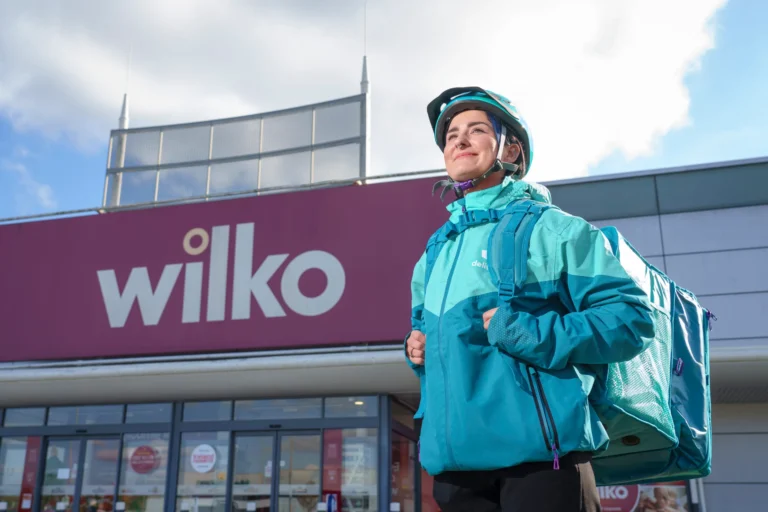Introduction to Wilko and its sustainability journey
Wilko has long been a household name in the UK, known for its wide range of affordable products. But beyond just delivering value to customers, the brand is on an inspiring journey toward sustainability. As consumers become increasingly aware of their environmental impact, Wilko recognizes its responsibility in shaping a greener future.
With growing concerns about climate change and resource depletion, more brands are stepping up to adopt eco-friendly practices. Wilko is no exception; it’s redefining what it means to be a responsible retailer. From innovative product offerings to sustainable packaging solutions, this retail giant aims not only to meet consumer demand but also set new standards within the industry.
Let’s delve into how Wilko is paving the way for eco-conscious shopping and what that means for both customers and the planet.
The importance of sustainability in the retail industry
Sustainability has emerged as a critical concern within the retail industry. Consumers are increasingly aware of their impact on the planet, demanding brands that reflect their values.
Retailers play a pivotal role in shaping consumer habits. Their choices can either contribute to environmental degradation or promote positive change. As awareness grows, companies must adapt to remain relevant and trustworthy.
Implementing sustainable practices can lead to cost savings and operational efficiencies. From reducing waste to sourcing responsibly, every step counts towards a greener future.
Moreover, sustainability is becoming a key differentiator in competitive markets. Brands committed to eco-friendly practices often attract loyal customers who prioritize ethical consumption.
Embracing sustainability isn’t just an option; it’s becoming necessary for survival in today’s conscientious marketplace. The shift toward environmentally responsible retail isn’t merely beneficial—it’s essential for lasting success.

Eco-friendly products and packaging options at Wilko
Wilko is making waves with its range of eco-friendly products. Shoppers can find a variety of sustainable options, from cleaning supplies to gardening tools. These items are designed to minimize environmental impact while maintaining quality.
Packaging plays a crucial role in sustainability. Wilko has taken significant steps to reduce plastic use across its product lines. Many items now come in recyclable or biodegradable packaging, which helps consumers make greener choices effortlessly.
The brand also emphasizes transparency in sourcing materials. You’ll spot more recycled content and responsibly sourced ingredients than ever before. This approach not only supports the environment but also encourages customers to feel good about their purchases.
By prioritizing eco-conscious designs, Wilko is leading by example within the retail landscape—showcasing that it’s possible for everyday households to embrace sustainability without compromising on convenience or affordability.
Partnerships and initiatives supporting sustainability at Wilko
Wilko has embraced collaborations that underscore its commitment to sustainability. By teaming up with various environmental organizations, the brand amplifies its efforts in eco-friendly practices.
One notable partnership is with the Woodland Trust. This initiative focuses on tree planting and conservation projects across the UK. Every purchase of select products contributes to a greener planet.
Additionally, Wilko participates in recycling programs aimed at reducing waste. Customers can return used packaging in-store, promoting a circular economy approach.
Community engagement is equally important for Wilko. The brand hosts local events that educate shoppers about sustainable living while fostering connections within neighborhoods.
Through these initiatives, Wilko not only enhances its product offerings but also encourages customers to engage actively in sustainability efforts. Each collaboration reflects a step forward toward making retail more responsible and environmentally friendly.
Challenges faced by Wilko in implementing sustainable practices
Implementing sustainable practices is no small feat for Wilko. As a retail giant, the brand grapples with complex supply chains that often prioritize cost over eco-friendly options.
One major challenge lies in sourcing materials. Finding suppliers who adhere to strict sustainability standards can be difficult. This can lead to compromises that conflict with their green goals.
Wilko also faces internal hurdles. Educating staff and aligning everyone with sustainability initiatives requires time and resources. Employees must fully understand the importance of these changes for them to resonate on the shop floor.
Consumer behavior adds another layer of complexity. While many customers are increasingly eco-conscious, changing established shopping habits takes effort and patience from all parties involved.
Navigating regulations around sustainability presents its own set of challenges. With evolving legislation, staying compliant while pushing forward innovative practices demands constant adaptation.

Future plans for Wilko’s sustainability
As Wilko continues to navigate its sustainability journey, the brand has ambitious plans for the future. One of their key objectives is to achieve a significant reduction in carbon emissions across all operations by 2030. This commitment will involve enhancing energy efficiency in stores and distribution centers while also investing in renewable energy sources.
Additionally, Wilko aims to expand its range of eco-friendly products significantly. The focus will be on sourcing materials responsibly and ensuring that these products meet rigorous environmental standards. Plans are underway to introduce more biodegradable packaging options as well.
Furthermore, community engagement remains a priority for Wilko. They intend to launch educational initiatives aimed at raising awareness around sustainable living practices among customers and employees alike. Collaborating with local organizations will play an essential role in fostering a culture of sustainability within communities they serve.
By forging deeper partnerships with suppliers who prioritize ethical practices, Wilko envisions reinforcing its supply chain’s resilience while contributing positively to global sustainability efforts.
As these plans unfold, it’s clear that Wilko is not just reacting to market demands but actively shaping a greener tomorrow for retail and beyond.

